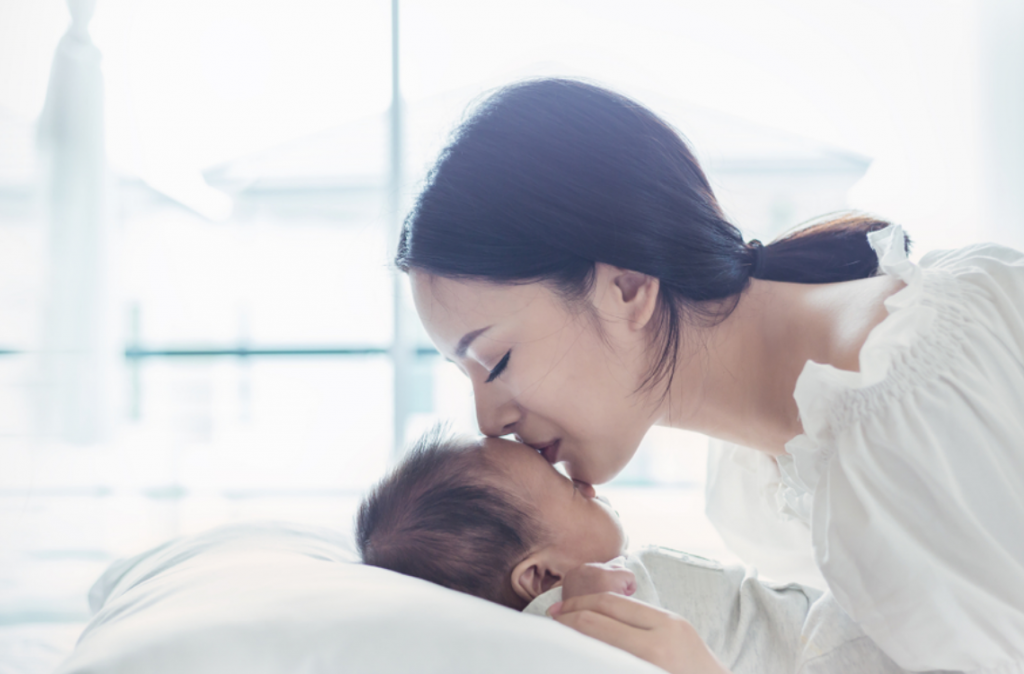In today’s age of globalisation, cultures from all over the world are clashing head-on. It is no different in Mabel Teoh’s household as she attempts to juggle both the Asian and European way of raising a child.
The choices we make for our children are universal and the key to successful parenting is in learning to find the balance between two worlds.
* Chinese people believe that every single food falls into either one of the yin-yang categories like hot, cold, wet and dry. Imbalance of chi occurs when there is a shortage or too much food consumed from one certain group.
Highlighted
When I told my babysitter that I give my daughter mangoes when she’s down with the flu, she responded: “It’s wet heat*; you shouldn’t give it to her!”
But she likes it, it’s good for her and has loads of Vitamin C.
“No no no! We Asian should do things our way.”
I just smiled but inside, I couldn’t help but feel annoyed yet amused by her remark. It definitely didn’t help to know that my daughter recovers faster from illness, eg. HFMD or the common flu bug, because her diet is wonderfully balanced with plenty of fruits and vegetables of all colours, shapes and sizes.
Since the time I found out I was pregnant, I have been bombarded by the “Asian way” of doing things.
I fought with my mother on why it was perfectly okay and even necessary for me to hold a knife, to sew and knit (my two favourite hobbies), and to drown myself in foods like bananas, watermelon and oranges in the first trimester.
These items together with pineapples, cheese, crabs and what-not are on the “forbidden” list for pregnant women due to either old wives’ tales or superstitious beliefs. She flipped too when she found out that I went hiking and even snow-walking with my husband.
Later, we clashed again during the confinement period. Because I was determined to breastfeed my daughter, I refused to eat any ginger or drink much of the ginger wine – items that are abundant in confinement food.
I washed my hair, showered, read and watch TV despite her telling me not to. I couldn’t fathom going for days without a bath or hair wash, especially with my C-sec scar.
To help me battle the baby blues, my husband took me out for evening walks; something which my mother frowned on. “Wait till you are in your old age and start complaining of aches and pains,” she warned me.
Then came the killer – when my daughter started solids. Prior to this, I had read and observed how other Asians tackled solid-feeding with children.
My husband, who is a European, brought to the table his own beliefs of how a child should start their first journey to discovering food.
I decided to mix the two and give both cultures equal airtime in my daughter’s food calendar, gravitating a little towards the angmoh way.
I started off my daughter with organic grain cereals – rice, barley and oats – with fruit and vegetable, and only introduced meat – eggs and chicken – from around 10 months onwards.
My parents and relatives were shocked, to say the least. To them, starting off without porridge (only rice) and the meat was sacrilegious.
Giving things like spelt, oats, barley, and fruits other than apples, plums or bananas was just weird and very unAsian.
As my daughter got older, the comments continued. My father would bombard me with endless remarks and suggestions about how my daughter was “too small” and needed “meat and milk” to fatten her up.
Never mind that the paediatrician and a host of other people, his friends included, were telling him that his grandchild looked just about right for her age and height.
I remember writing to a local English daily once to explain the troubles my peers had with breastfeeding in public and had to implore people to change their often-sexual perception about public breastfeeding.
A few days later, a woman replied saying that even if no one stared at her while she was breastfeeding, she wouldn’t be comfortable exposing her breast in public and it’s not part of “our Asian upbringing”.
Never mind the fact that you don’t really expose anything when you breastfeed. So are we saying that those of us who breastfeed in public are not Asian-enough or modest or…?
My husband once remarked that he finds it strange that people here often fall back on their ethnicity to justify their actions. “It’s Asian…”, “It’s Indian…”, “It’s Chinese…” and so forth.
However, parenting and parenthood, the choices we make for our children are universal and the key to successful parenting is in learning to find the balance between two worlds – a bigger challenge, I feel, for those in multi-ethnic marriages or families.
Ethnocentricism does not benefit anyone in the long run.
If a practice from another community or ethnic group benefits my child (and me), why not? Should I stick to age-old parenting beliefs just because “it’s the Asian way”?
